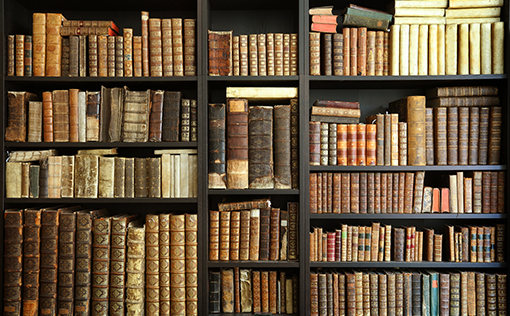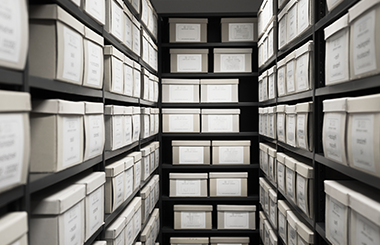
In France, the term public archives is used to describe all documents produced by the state, local authorities and public institutions. It also encompasses the records of private law enforcement agencies that manage a public service or a public service mission, as well as the minutes and registers of public or ministerial officers.
Public archives exist to meet the day-to-day needs of the current government, to justify the rights of natural or legal persons, public or private, and as historical documentation for research purposes.
The documents in public archives are subject to different legal obligations, and their storage is strictly regulated, particularly to promote transparency in government.
From the royal archives to public archives
In France, institutions began managing their records early on. As early as the 7th century, the abbey of Saint-Denis kept a record of the donations it received. The royal archives were created in 1194, the day after the defeat of Fréteval, during which King Philippe Auguste was said to have lost the tax books.

But it was the French Revolution that saw the establishment of a dedicated French archival authority. The decree of 7 September 1790 created the National Archives and provided a clear legal framework for the management of royal and government archives.
The history of public archives was further shaped by the law of 7 Messidor II (25 June 1794), which created the first National Archives network. The regulation led to the centralisation of public memory and ensured public access. All citizens gained the right to request materials from the national, departmental and communal archives, making them a resource for everyone, not just historians, sociologists and genealogists.
Towards a structured archive network
It was not until October 26, 1796, and the law of 5 Brumaire Year V that an archiving service was created for each department. By the time the 18th century drew to a close, France had two archiving systems: the National Archive and a network of local archives, including departmental, municipal, and hospital archives.
Under the July Monarchy and the Second Empire, public archives became structured and specialised; regulations and methods were introduced, the École des Chartes trained professional staff, and printed inventory collections were made available.
In 1897, the National Archive and the local network of archives merged to form the Archives Department. Placed under the responsibility of the Ministry of Public Instruction, it became the Directorate of the Archives of France in 1936 and then one of the directorates of André Malraux’s Ministry of Cultural Affairs in 1959.
A perpetual evolution
Twenty years later, in 1979, Book II of the Heritage Code incorporated public archives, described at the time as the set of rules for the management of public archives and the protection of private archives. These rules were applicable to all public, national or local bodies.

A major reform in 2008 marked another turning point, allowing the outsourcing of the preservation of so-called “current and intermediate” public archives to private service providers duly approved by the Service Interministériel des Archives de France (SIAF).
Controversial access to archives
This new law, known as the law of July 15, also established that any citizen who makes a request can access public archives freely. However, these documents sometimes contain information that must be protected, such as state secrets (defense, government discussions, foreign policy implementation, national security, etc.), personal secrets (private life, medical secrecy, etc.), industrial and commercial secrets, and secrets of judicial investigations. As such, these archives only become publicly accessible after 50 years.
Regardless of their age, only one category of documents remains inaccessible: those in the public archives “whose communication is likely to lead to the dissemination of information allowing the design, manufacture, use or location of nuclear, biological, or chemical weapons or any other weapons with direct or indirect destructive effects of a similar degree.”
But in 2011, a regulatory government text entitled General Interministerial Instruction No. 1300 blocked access to any public archive documents that were classified as a defence secret. The text directly undermined access to public archives as provided for in the Heritage Code, effectively blocking access to any documents concerning controversial periods in French history.
Confronting a dilemma, archivists and historians fought to repeal the General Instruction. They won the case on July 2, 2021, by decision of the Conseil d’Etat (Council of State).
Visit AGS Records Management to view our archiving services.

